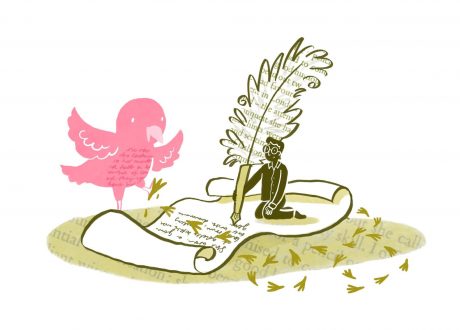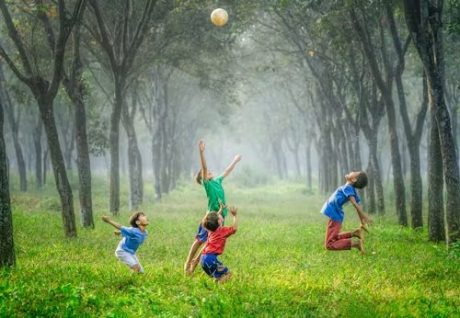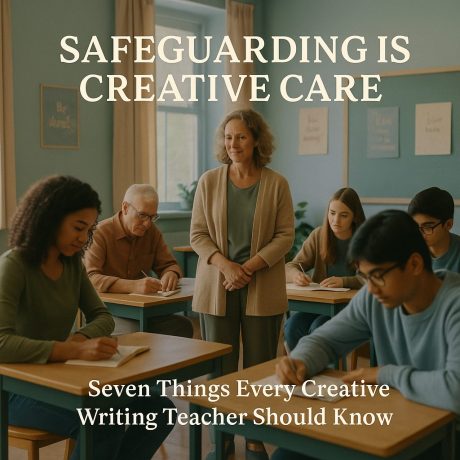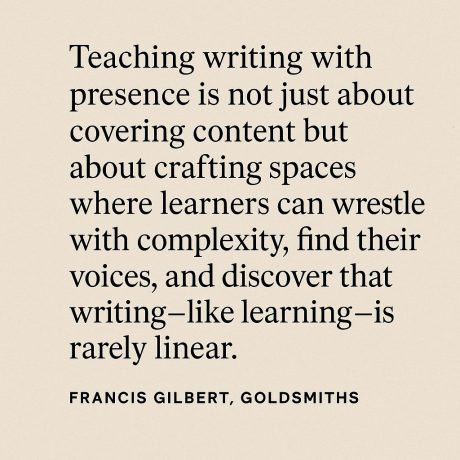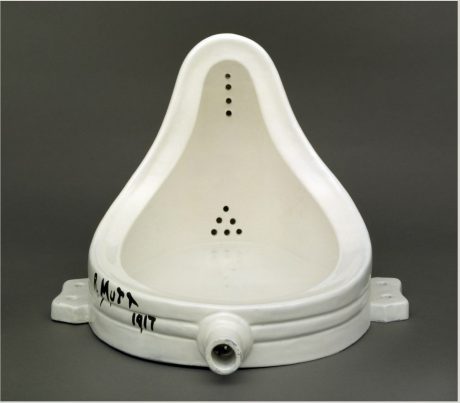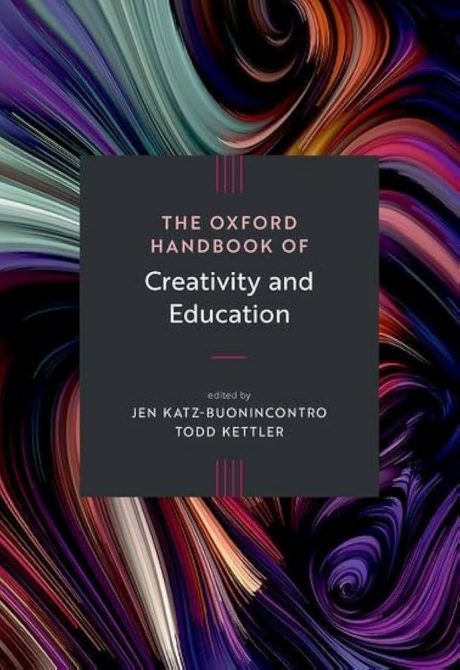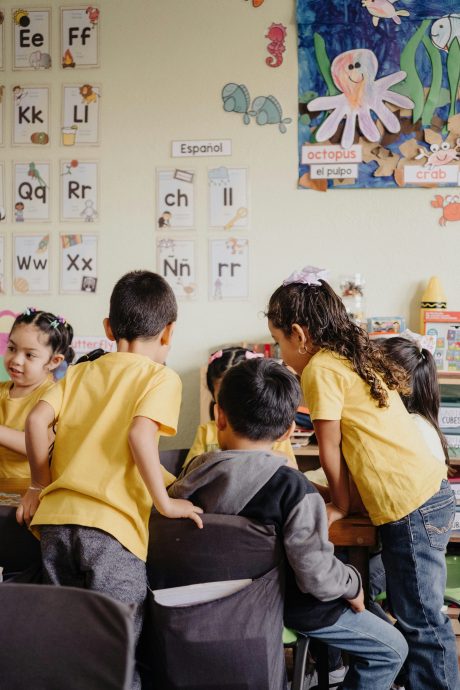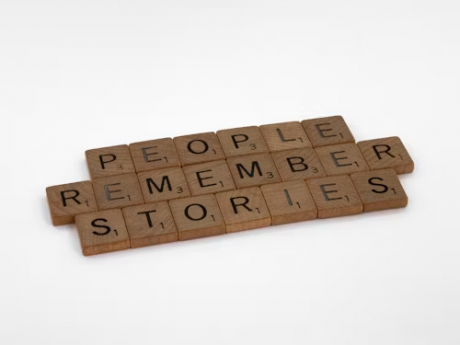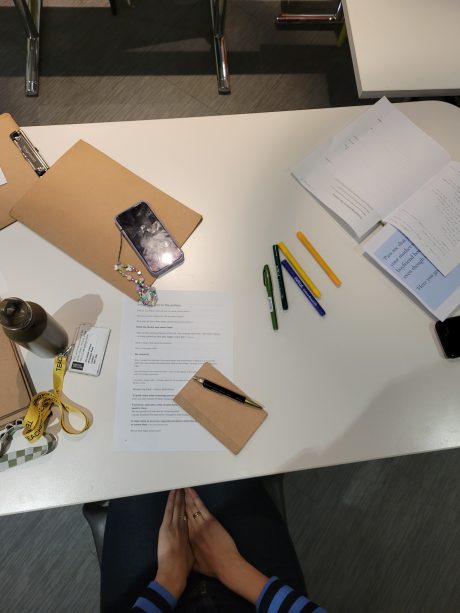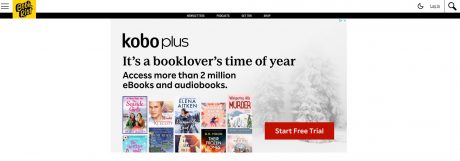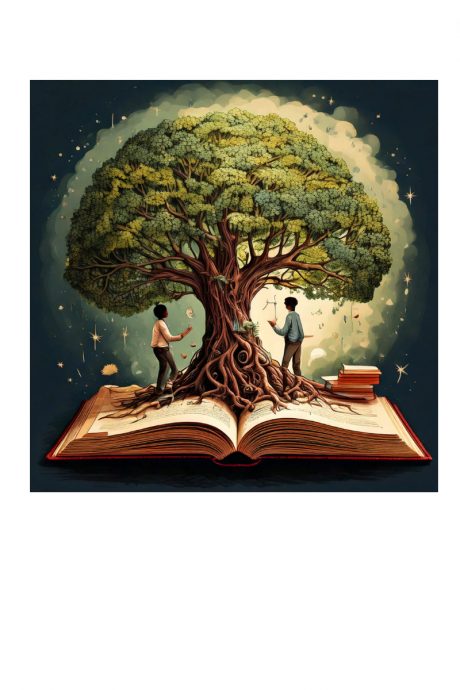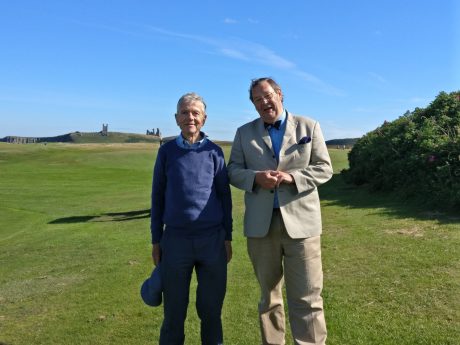All articles on this site
-
Five Salty Lessons from The Salt Path: Walking the Edge of the World
I wrote Five Salty Lessons from The Salt Path after watching the new film adaptation of Raynor Winn’s powerful memoir. Having read the book, listened to the radio version, and walked sections of the South West Coast Path myself—often with my son—I was moved by how the film captured the raw, weather-beaten truth of Raynor and Moth’s journey. This piece blends personal reflection with literary and philosophical insight, drawing on thinkers like Deleuze, Spinoza, and Wordsworth, and weaving in texts like Beowulf to explore the deeper meanings of salt, walking, homelessness, love, and home. More than a review, it’s an essay about transformation: how walking can be a form of becoming, how landscapes tell stories, and how we find belonging not in possessions, but in presence, connection, and kindness. If you’ve ever felt changed by a path, haunted by a film, or comforted by a wild blackberry on a wet day, I hope this speaks to you.
-
The Mindful Creative Writing Teacher
This blog introduces The Mindful Creative Writing Teacher—my book for anyone teaching or facilitating creative writing, whether in schools, universities, prisons, or community spaces. Drawing on decades of experience, I offer a fresh, practical, and compassionate approach to teaching writing that blends mindfulness, creativity, and social justice. In the blog, I explain why I wrote the book: to move beyond rigid workshop models and embrace a more humane, dynamic, and inclusive pedagogy. The book is filled with real-life case studies, poems, hands-on activities, and reflective prompts designed to help you cultivate creativity, wellbeing, and critical thinking in your classroom. It’s for English teachers, creative writing tutors, and writers alike—especially those looking to empower diverse voices, support reluctant or neurodiverse learners, and find joy in their own writing again. You’ll find strategies for teaching storytelling, feedback, decolonisation, and multimodal writing, as well as guidance on developing your own mindful teaching identity. This blog offers a glimpse into the book’s ethos: writing not just as a craft to be perfected, but as a transformative act of attention, empathy, and expression. If you’re looking to teach writing in a way that’s more authentic, creative, and connected, this book—and blog—are for you.
-
7 Transformative Lessons from First Story’s Creative Writing Approach – A Goldsmiths Reflection
In this blog, I reflect on an inspiring session led by novelist and First Story writer-in-residence Pete Hobbs. Drawing on seventeen years of working with young writers, Pete shared a wealth of practical, playful exercises and a deeply inclusive pedagogy that reimagines creative writing as a space for experimentation, voice, and community. From evoking memory through sensory detail to empowering students to write in their own linguistic registers, his approach offers powerful strategies for educators at all levels. This post captures the session’s key takeaways—and celebrates the joyful, transformative possibilities of writing. It left me rethinking how I teach.
-
Seven Things Creative Writing Teachers Should Know About Safeguarding
I’m Francis Gilbert, and I’ve just published a vital blog post: Seven Things Creative Writing Teachers Should Know About Safeguarding. Drawing on a powerful masterclass led by Danja Sanovic at Goldsmiths, I reflect on how safeguarding isn’t just a legal box-tick but a deeply creative, relational act. Whether you’re teaching in schools, leading workshops in the community, or working with adults, this post offers clear, compassionate guidance. It’s essential reading for anyone using writing to reach vulnerable groups. Creativity thrives when everyone feels safe. Read the post and rethink how you hold your writing spaces.
-
6 Ways to Design Effective Creative Writing Lessons
I’ve written this blog to share some of the key insights from a recent seminar I delivered for students on the MA in Creative Writing and Education at Goldsmiths—and for anyone interested in designing more mindful, engaging creative writing lessons. Drawing on the CASTERS framework, James Nottingham’s “Learning Pit,” and ideas around publishing, reflection, and inclusive practice, the session offered practical strategies for teaching writing with presence, purpose, and care. Whether you’re a teacher, writer, or facilitator, this blog offers inspiration and guidance for creating lessons that challenge, connect, and empower. Find out more and join the conversation.
-
📎 CUT + COPY + TEACH: 5 Ways Uncreative Writing Will Turbocharge Your Teaching
As a writer and educator, I’ve long been fascinated by how creativity works in the classroom. In this blog, I explore Uncreative Writing, a radical teaching approach developed by Dr Cath Clover. Drawing on her powerful workshop at Goldsmiths, I show how copying, remixing, and reframing existing texts can spark critical thinking, accessibility, and genuine creative joy. Whether you’re teaching English, media, or any subject, this inclusive method helps students find their voice through found words.
-
5 Ways Creative Writing Can Fuel Creativity
I’ve long believed that creative writing isn’t just for the English classroom—it’s a radical, transformative practice that can fuel creativity across the curriculum. In my new chapter for The Oxford Handbook of Creativity and Education, I explore how freewriting, diagrarting, critical literacy, and compassionate feedback can empower learners of all ages. Drawing on decades of teaching experience and recent research, I show how creative writing can heal, liberate, and inspire. This piece is for educators, writers, and anyone interested in reimagining how we learn and grow through words.
-
Publishing as Pedagogy: Why Creative Writers and Teachers Need to Understand the Industry
In this article, I explore why knowledge of the publishing industry is essential for both creative writers and educators. Drawing on my experience teaching publishing to MA students, I argue that understanding how books are produced, marketed, and circulated can empower writers and transform the way we teach creative writing. This piece is both a call to action and a practical guide for integrating publishing literacy into the creative writing classroom.
-
Five Ways to Decolonise the Teaching of Creative Writing
In April 2025, I had the joy of welcoming back Carinya Sharples—a former student of mine from the MA in Creative Writing and Education I lead at Goldsmiths—for an unforgettable session on Decolonising Creative Writing Pedagogies. Carinya held the space with grace, rigour and radical care, sparking vital conversations about power, voice, and language. In this blog, I share five key strategies that emerged from her talk and my own experience—practical, powerful ways to rethink how we teach creative writing. If you’re ready to challenge norms and embrace liberatory practice, come explore more with me by reading the blog.
-
Reimagining the Future of Publishing: Five Observations on YA, Pedagogy, and Digital Literature
In this blog, I explore how contemporary YA literature acts as both a cultural mirror and a critical tool—reflecting the world young people live in while helping them make sense of it. Drawing on Suico et al.’s content analysis and Warner’s ideas about literature as ritual, I look at how YA fiction engages with themes like trauma, justice, and identity. I also consider the growing academic interest in YA and what this means for classrooms today. Ultimately, the blog reflects on how YA can offer not just stories, but space—for reflection, resistance, and hope.
-
The perils and pleasures of creative writing competitions and prizes: 5 key points
Prizes often symbolize external recognition, but what if I reimagined them as personal milestones—self-awarded markers of creativity, persistence, and growth? In this blog, I explore how literary prizes shape careers and confidence while offering five strategies to navigate competitions and create personal benchmarks. I introduce ‘internal prizes’—small yet meaningful ways to celebrate achievements, from finishing a tough draft to inspiring students. Drawing on insights from Kei Miller, Kristin Neff, and literary organizations, I invite you to rethink success and resilience. Prizes have power, but they don’t define your worth. Honour your journey—on your terms.
-
Only Connect: Creative Writing Comes Alive at the British Library
Only Connect: Creative Writing at the British Library was a vibrant and inspiring event that brought together twenty creative minds to explore the power of writing. Led by MA Creative Writing and Education students from Goldsmiths, participants engaged in a carousel of interactive workshops, each designed to spark creativity and deepen connections with the British Library’s collection. From crafting dialogues with historical figures to exploring the sensory world of smells and sounds, the event encouraged new ways of seeing, hearing, and feeling stories. Attendees left feeling inspired, with many calling for more in-depth sessions. Want to be part of the next one? Stay tuned for future creative writing events at www.francisgilbert.co.uk!
-
Creative writers and marketing: some thoughts and observations
Marketing isn’t just about selling books—it’s about finding the right readers, refining your creative process, and sharing your work with confidence. In this blog, we explore marketing in the publishing industry through the lens of the writer as a healer, teacher, researcher, and reflective practitioner.
-
Digital storytelling, translation and publishing
In an era of rapid digital transformation, storytelling, translation, and publishing are evolving in unprecedented ways. This article delves into the power of digital storytelling as a tool for inclusivity and multilingual expression while critically examining the role of AI in publishing and its potential biases. Drawing on Federico Ivanier’s novel, Never Tell Anyone Your Name (Ediciones Santillana, Montevideo, 2023), the piece explores the complexities of online identity and security, linking them to the responsibilities of writers as reflective practitioners. Emphasizing the importance of research, compassion, and self-care in writing, the article highlights how storytelling can be a means of healing and deep engagement with the world. Whether you’re an author, educator, or translator, this article provides valuable insights into navigating the modern literary landscape with awareness and integrity.
-
Using publishing tools to create thriving creative writing communities and cultures
Publishing isn’t just about books—it’s about shaping identity, community, and activism. This blog explores how the MA Creative Writing and Education at Goldsmiths uses publishing as a pedagogical tool, from internal dialogues between the Writer, Publisher, and Healer within us, to global projects like GlobalGRACE and Creative Voices, which use storytelling, theatre, and art to amplify marginalised voices. Discover how publishing extends beyond the page to empower writers, challenge dominant narratives, and foster creative communities. Read more about how publishing can be a process of transformation, resistance, and education.
-
How can writers benefit from learning about the Publishing Industry? Three key points and two questions
This blog post explores how creative writing teachers can learn about the publishing industry, and invites them to think about how it can used to develop their craft, their pedagogy, and generally help them learn and grow.
-
Learning to write, publish and teach, all in one go!
This blog explores how learning to write, publish and teach can help creative writers in multiple ways; they can hone the craft of their writing and pedagogy by using publishing as a pedagogical tool. A truly innovative approach…
-
In what ways can publishing support writers’ emotional needs?
This blog explores how publishing does and does not meet writers’ emotional needs. It introduces and explains the concept of emotional needs, and then shows how publishing might address these.
-
Towards a methodology for creative writing educators to use publishing to develop their writing and teaching
An article which discusses how creative writing educators might develop their own methodologies so that they can become fruitful creative writers who use publishing to develop the literary and pedagogical practices that work for them.
-
Four lessons I learnt from the late Canon Christopher Smith
A short article on the lessons I learnt from my late godfather, Christopher Smith.
topics I’ve written about on this site
- Archived (445)
- Creative Writers (6)
- FGI Publishing (32)
- Dr Jekyll & Mr Hyde: A dramatic adaptation of Stevenson's classic novel (2)
- Dr Jekyll & Mr Hyde: The Study Guide Edition (4)
- Far From The Madding Crowd: A Study Guide (2)
- Frankenstein: A Study Guide (2)
- How to Get a Great English Degree (2)
- Jane Eyre: A Study Guide (2)
- Learning Matters (2)
- Pride and Prejudice: A Study Guide (2)
- Songs of Innocence and Experience: A Study Guide (2)
- St. Cupid's (1)
- Star-crossed: Romeo and Juliet for Teenagers (2)
- The Hound of the Baskervilles: A Study Guide (2)
- The Long Game (6)
- The Mindful Creative Writing Teacher (1)
- The Mindful English Teacher (1)
- The Strange Case of Dr Jekyll and Mr Hyde: A Study Guide (2)
- The Turn of the Screw: A Study Guide (2)
- Wuthering Heights: A Study Guide (2)
- For (168)
- for academics (49)
- for parents (29)
- for students (95)
- for teachers (74)
- Therapists (9)
- Key concept (225)
- Academies (13)
- Admissions (4)
- Aesthetic autobiography (5)
- Analysing autobiography (4)
- Analysing quotation (5)
- Autobiographical classroom materials (4)
- Bullying (4)
- Child Language Acquisition (17)
- Choosing A Secondary School (3)
- Collective Identity (3)
- Communication (10)
- Comparison (5)
- Creative writing and therapy (8)
- Creative Writing Teaching (29)
- Curriculum change (7)
- Digital learning (6)
- Discipline (27)
- Education reform (56)
- English Baccalaureate (4)
- Free Schools (6)
- International comparisons of schools (2)
- Language Development (5)
- Media Studies (6)
- Mindfulness (6)
- Model answers (3)
- Ofsted (3)
- Punishments (4)
- Reading Reform (11)
- Resources (3)
- Reviews (13)
- School entrance (5)
- Semantic change (2)
- Specialist teachers (4)
- Student Voice (2)
- Teacher training (15)
- Teaching Unions (4)
- The Publishing Industry (12)
- Yob culture (12)
- Media appearances (35)
- BBC 2 Newsnight (2)
- BBC Breakfast (5)
- BBC News (2)
- BBC Radio3 (6)
- BBC Radio4 (5)
- BBC Radio5 Live (10)
- Channel 4 News (1)
- Channel 5 News (3)
- GMTV (2)
- ITV News (1)
- Sky News (1)
- Mindful Learning Podcast (3)
- My books (35)
- Anthologies (4)
- Fiction (4)
- Non-fiction (8)
- Study guides (16)
- Opinion (207)
- Parents (1)
- Published in (239)
- Academic articles (31)
- Blue Door Press (6)
- English Online (2)
- Local Schools Network (35)
- Long Game Articles (6)
- Mumsnet: talesbehindtheclasroomdoor (3)
- NAWE Magazine (2)
- Newsweek (1)
- Politico.eu (1)
- Reviews (1)
- Teachit.co.uk (1)
- The Big Issue (2)
- The Daily Mail and Mail on Sunday (8)
- The Daily Telegraph (24)
- The Evening Standard (3)
- The Guardian (43)
- Comment Is Free (29)
- The Local Schools Network (9)
- The New Day (1)
- The New Statesman (7)
- The Observer (4)
- The Tablet (1)
- The Times and The Sunday Times (33)
- The Times Educational Supplement (10)
- The Western Daily Press (6)
- The Yorkshire Post (4)
- Students (1)
- Teachers (2)
- Titles (31)
- UK education system (90)


